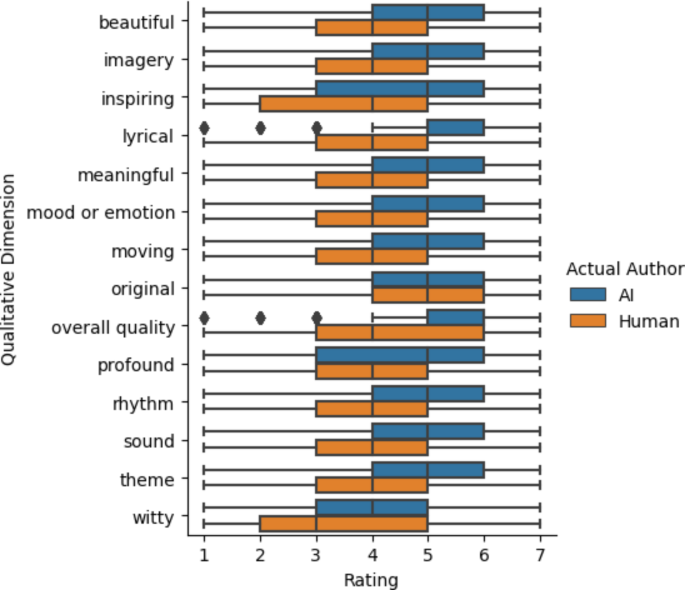55
As AI-generated text continues to evolve, distinguishing it from human-authored content has become increasingly difficult. This study examined whether non-expert readers could reliably differentiate between AI-generated poems and those written by well-known human poets. We conducted two experiments with non-expert poetry readers and found that participants performed below chance levels in identifying AI-generated poems (46.6% accuracy, χ2(1, N = 16,340) = 75.13, p < 0.0001). Notably, participants were more likely to judge AI-generated poems as human-authored than actual human-authored poems (χ2(2, N = 16,340) = 247.04, p < 0.0001). We found that AI-generated poems were rated more favorably in qualities such as rhythm and beauty, and that this contributed to their mistaken identification as human-authored. Our findings suggest that participants employed shared yet flawed heuristics to differentiate AI from human poetry: the simplicity of AI-generated poems may be easier for non-experts to understand, leading them to prefer AI-generated poetry and misinterpret the complexity of human poems as incoherence generated by AI.



Oh man, that doesn’t say anything good about poetry in general, where something that, by definition, has no imagination and cannot come up with something original, outdoes you.
I mean if it has to rhyme and fit certain meters or rhytmic parameters that can make it far easier to calculate and contrive a pleasing sounding poem with zero regard to the actual intrinsic qualities of the content itself
A sestina based on the rules is, formally speaking, easy. Ask me to write one that will be studied after centuries, and you’re asking for Petrarch.